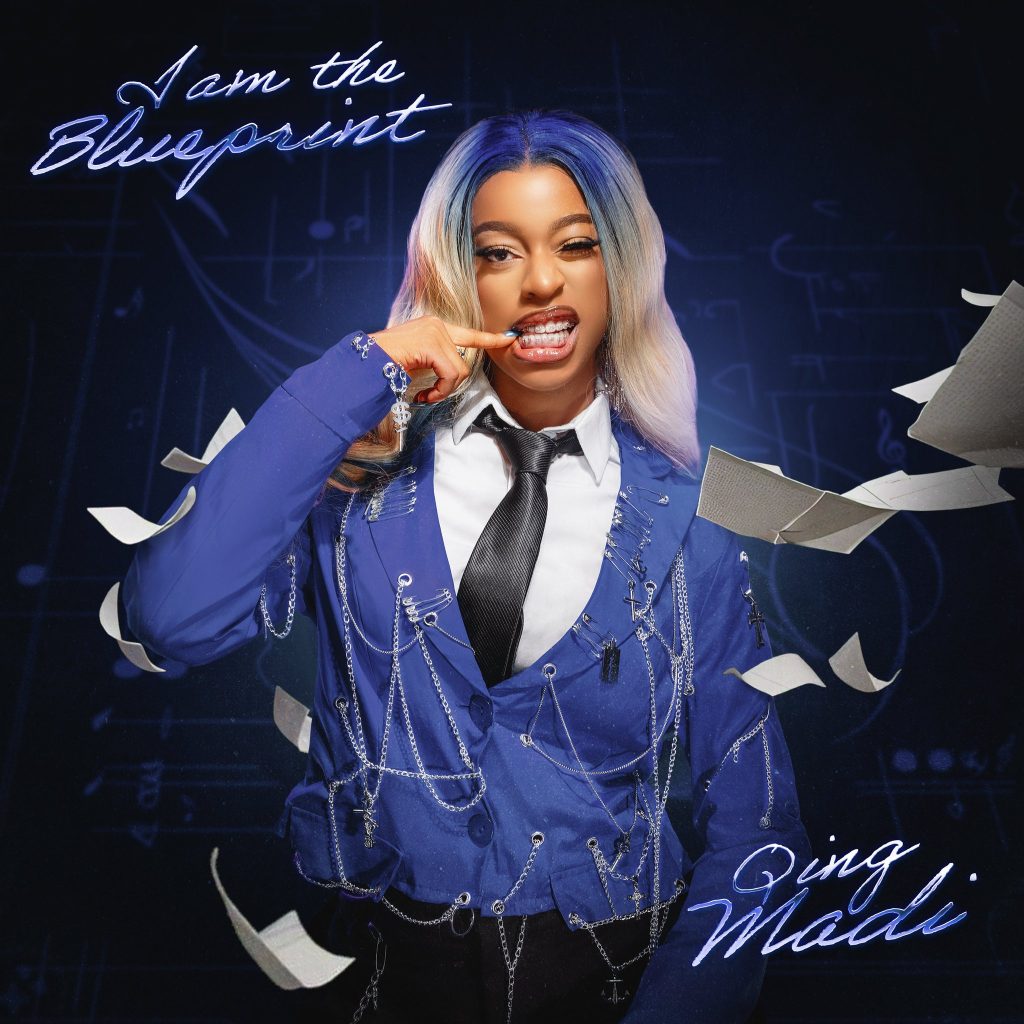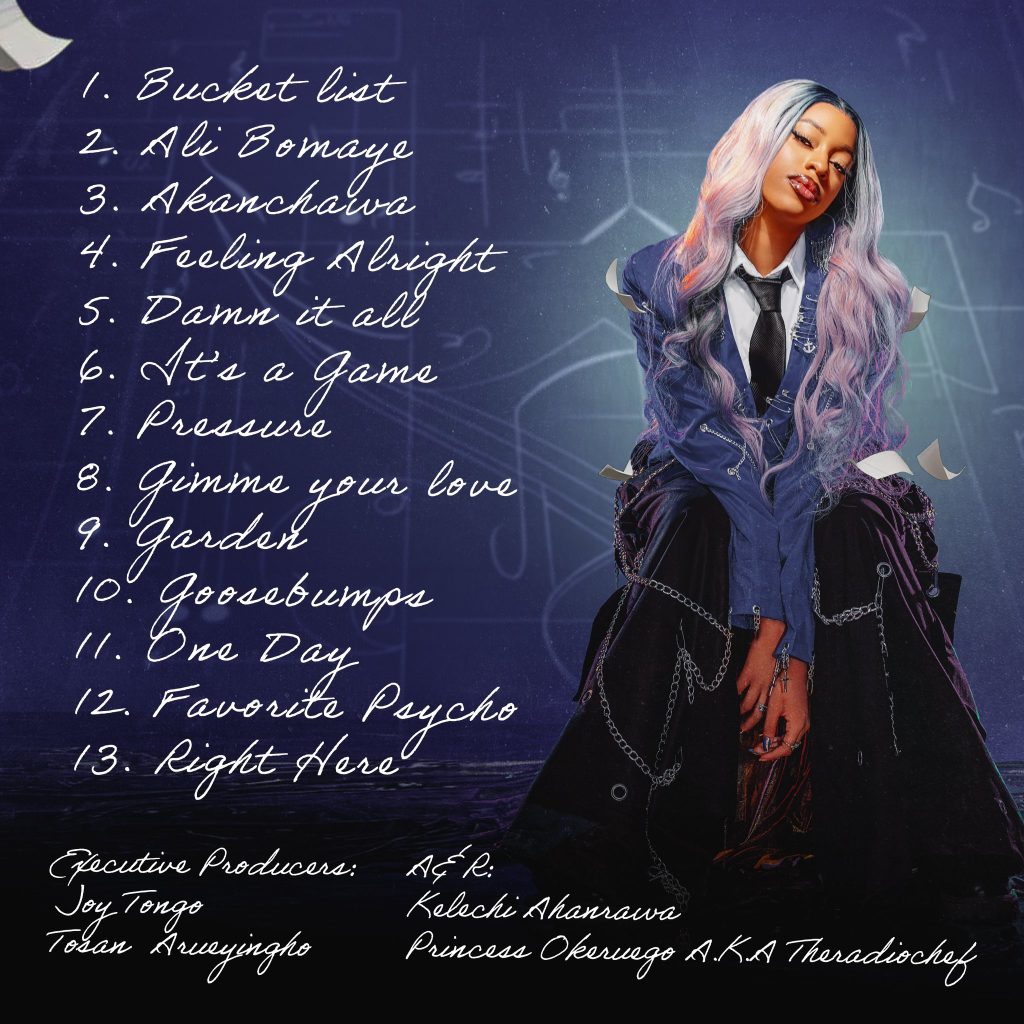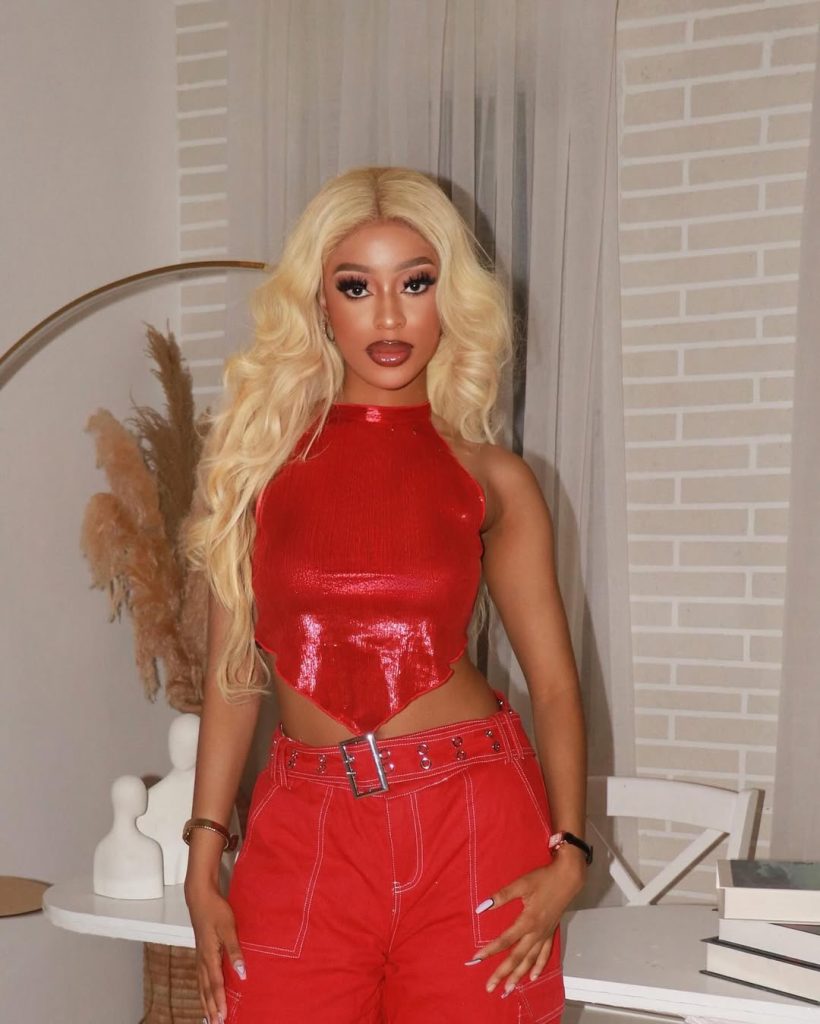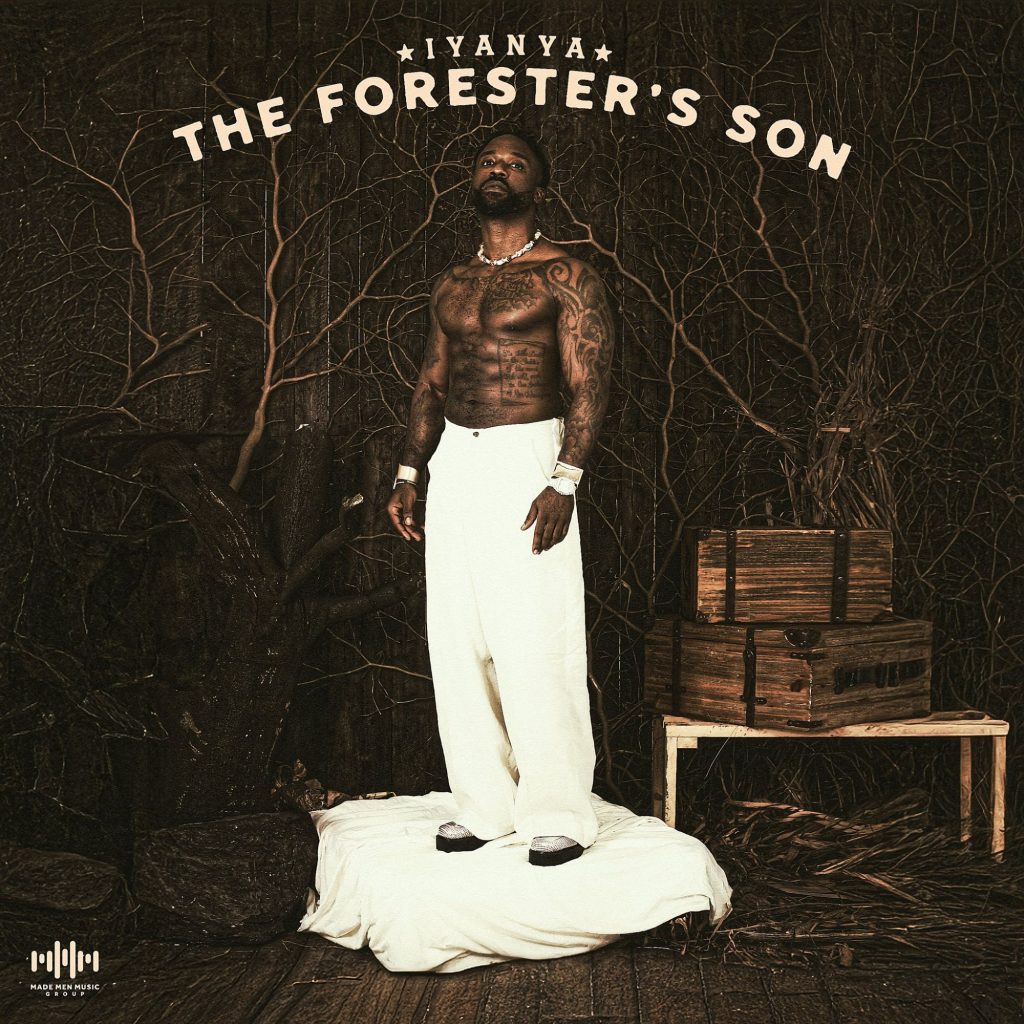On her debut album, Qing Madi sticks to her guns and utilizes her tried-and-tested formular to a tee. Too much to a tee in fact, that it’s a bit anti-climactic.

Qing Madi is a down-to-earth, honest and candid person. It’s pixel clear in her music and she has iterated that truth multiple times in interviews. Yes, she surfaced on the scene with jaded sentiments on her breakthrough track, Ole ft. BNXN but her subsequent releases and her ensuing project, established the fact that she feels emotions at the highest modulation and intensity. Her music is a by product of the type of person she is.
Part of her appeal is how she unapologetically portrays herself truthfully. A lot of artists curate an ideal image of how they prefer to be perceived and then, project said image into public consciousness but Madi doesn’t care for that and is usually her carefree, spirited self.
She mentioned herself that her debut album was simply a collection of songs, over defining periods of her life before it eventually coalesced into something profound that could be her debut album, not caring how that might rub off on casual observers. And she admits to being so nervous about how vindictive certain lyrics would come off, that she had to rework—not shying away from the fact that she might not be the most confrontational person around. And so this album, is simply her at the peak of her powers doing what she does best.

Bucket List is the album opener and it’s several musings bordering on her newly formed aspirations, now that she’s a star and operating in a new strata and atmosphere that comes along with the territory. Despite still being a teenager, she fantasizes about buying her mom—her biggest supporter—a mansion and also winning a Grammy. Her writing is precise, straightforward and probably not the most compelling delivery of the topic that would ground you and make you feel her emotions and motivation, but it’s a confident declaration nonetheless and an okay song overall.
Ali Bomaye is this writer’s favorite track on the album. Despite the production of the song—and the bulk of the album—having minimalistic instrumentation, it has some soulful acoustic guitar strings and a baseline that works alongside Madi’s emotive delivery. The chorus is very catchy and resonant. And although the verses don’t exactly dig dip into the helpless feeling of being swept off one’s feet and being at the mercy of a lover, Madi’s delivery is competent nonetheless.
Madi’s vocals continue to ensure a strong sailing along the course of the album. On Akanchawa, she sings about the need to compromise to win over the love and attention of her love interest. Once again, details are very sparse and the writing remains surface level so it’s hard to get invested in the story but the song is good for what it is, although it could be better. Feeling Alright is the song of affirmations and promises to one’s lover to keep the love alive and resolute. It’s not a bad song too, but it’s too sonically similar to Akanchawa and it doesn’t help that they come right after each other.
Damn It All heads into Afro-swing territory, which is much needed because the album had started to become monotonous. This song isn’t all roses and peaches, unlike its predecessors with Madi revealing a twisted side to her, by admitting the fact she loves the attention she’s getting from a man pining over her, despite not feeling the same by calling him a “a fan.” It’s A Game is R&B shenanigans at its finest, with two lovers fighting for dominance and the right to dictate the play of their relationship. This time around, the verses depict a vivid story of Madi spiraling over the emotional tug of war transpiring—and coming undone over the possibility of losing her lover.

Pressure kicks up the tempo up a notch once more and now Madi talks about how internal pressure can sometimes be suffocating and emphasizes on the fact that she can’t go it alone, without God having her back. Gimme Your Love also features a soulful acoustic guitar and it’s another feel-good, heartfelt record about love and yearning. It’s a sonic and structural twin to Ali Bomaye, but the latter is the better written track. On the following track, Garden is still in the act of convincing her love interest to give her a chance but the production on this track elevates it and makes it the better of the pair.
Goosebumps has impressive cadences and effective metaophors in conveying how blindsided love could make anyone, and it’s a really good song and astute choice as the first lead single. However, when heard in the context of the entirety of the album, this late into its runtime after hearing a handful of songs that feature strikingly similar bounces and drum patterns—the experience is a bit cheapened. Semzi brings some much needed variance to the production on One Day and elevates Madi’s great vocals, with more instruments and drums interacting on a more dynamic level and it works, despite Madi still singing about convincing a lover to take a chance.
Favorite Psycho has Madi contemplating and descending into obsessive tendencies, in the hopes that it becomes clear to her love interest that there is no one else better for him. The situation doesn’t become downright toxic with physical or emotional harm, but Madi is grossly unaware of the fact that it isn’t only what she want that matters and it might be best to move on. Album closer, Right Here ends the album on the same confident note that Madi started it on, except where she was aspirational on the intro, she’s reflecting and even imploring the listener to go ahead and chase their dreams too.
Prior to I am The Blueprint, Madi released her self-titled debut EP which introduced us properly into her world and her sonic identity, grounding us in the very essence of her artistry. Her debut album should have taken that a step further and had her in much more ambitious and diverse soundscapes—to showcase her dynamism and dimensionalize her innate talent, but she plays it too safe and sticks to her guns. The production also lets her down, as it’s too minimalistic and underwhelming to elevate her performances. However, it is a decent album that would be enough for her fans, but might not do much for casuals.
Final Verdict:
Sonic Cohesion & Transitions: 1.5/2
Expansive Production: 1.2/2
Songwriting: 1.3/2
Delivery: 1.4/2
Optimal Track Sequencing: 1.4/2
Total: 6.8/10






